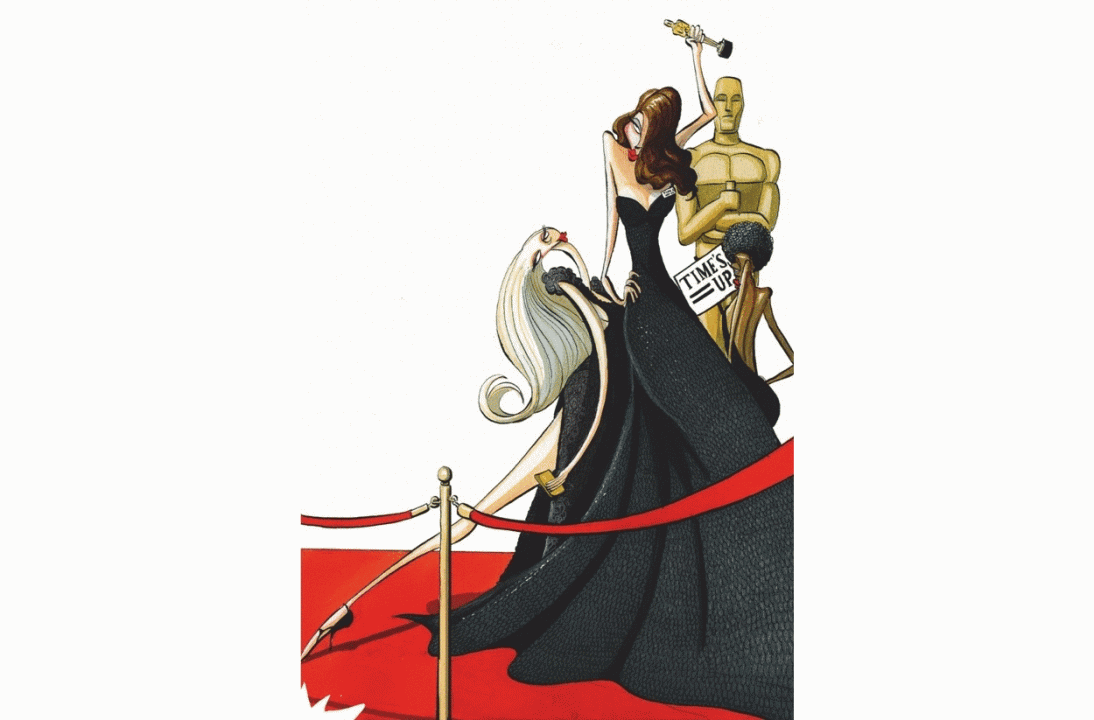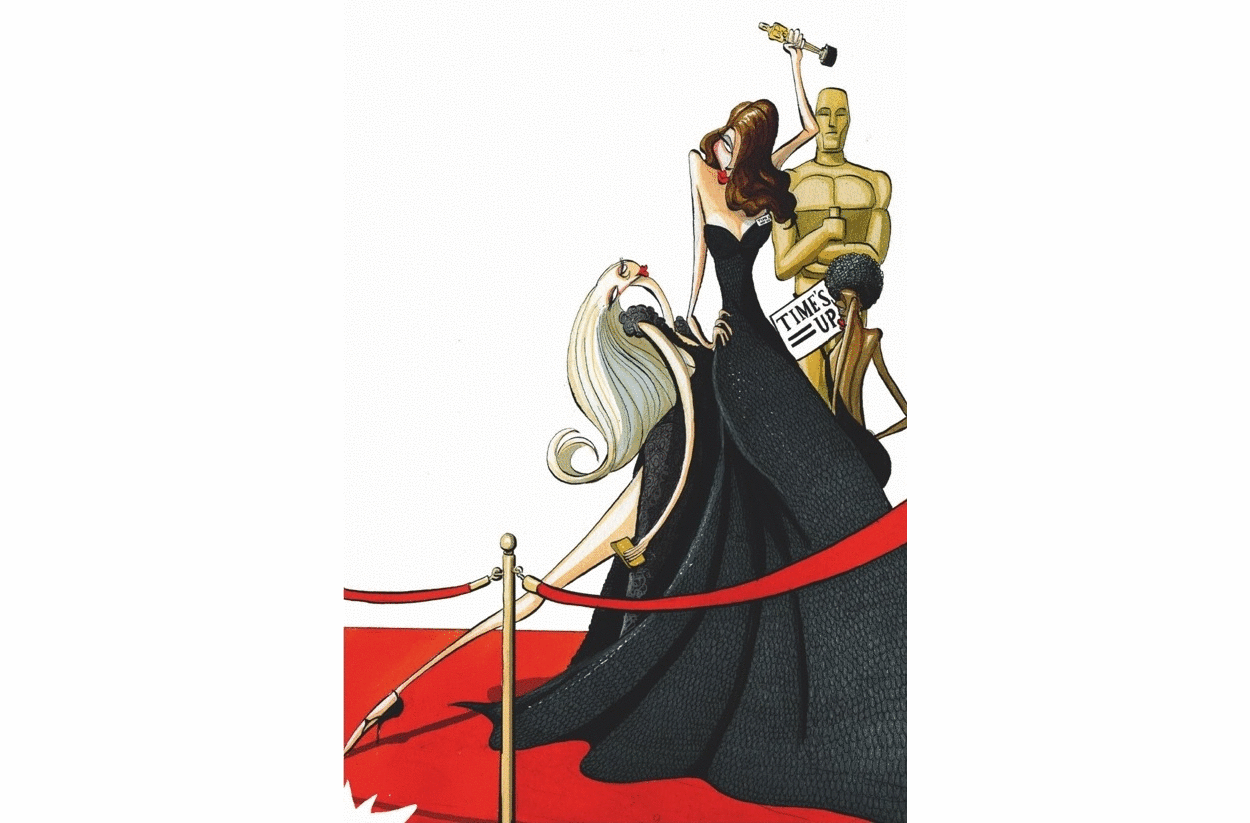In our celebrity-obsessed culture, the EGOT establishes someone as an all-out legend. Achieving an Emmy, Grammy, Oscar, and a Tony is the Hollywood-Broadway equivalent of a quadrathlon. Only 19 people have ever won all four awards and the feat is usually accomplished over several decades. Articles run every award season advising punters of the stars who are ‘nearly there’ – Elton John has finally made it, receiving an Emmy for a streaming performance of his farewell concert.
The most efficient route to an EGOT is to write a beloved stage musical which is then turned into a film
There is some contrast, however, between the public perception of the EGOT and what it takes to actually win. For example, you might assume that the inclusion of the Grammy implies musical acumen. Not so. Viola Davis, the newest EGOT, won hers for a recorded reading of her autobiography. Audrey Hepburn, who was usually dubbed in her movie musicals, succeeded with a tape of children’s stories. Only Jennifer Hudson and Rita Moreno have been rewarded for a mixture of acting and singing. The usual screen-and-stage polymaths, like Barbra Streisand and the Garland-Minnellis, are rarely considered ‘real’ EGOTs. This is on account of their ‘honorary’ and ‘lifetime achievement’ awards, which are given on an uncompetitive basis (surely exclusion from competition is evidence of competitiveness?).
Inevitably, the four awards overlap. The most efficient route to an EGOT is to write a beloved stage musical which is then turned into a film. A cast recording is fair game for a Grammy, even if you’ve already won something else for the same music. Televise the whole production and you might be up for an Emmy in the mixed-bag ‘variety’ category. Mel Brooks won an Oscar for The Producers in 1967, and then three Tonys and a Grammy for its stage adaptation, put on decades later. That’s three birds with one bit of IP. He is joined by Andrew Lloyd Webber, who bagged three out of four letters for various incarnations of Evita.
Called up in the ‘variety’ category at this week’s Emmy Awards, interestingly enough, was last year’s televised ceremonies for the Oscars and Tonys. Thus we enter into a sort of absurd recursion. The gongs become sentient and inherit the entertainment industry. Could the Oscars themselves gain EGOT status? Will there soon be a fifth ceremony, where we crown the most deserving award, and then a sixth, for awards of awards? (The Bafta definitely looks nicest on a shelf).
EGOT obsession is part of our quasi-religious need for narratives of grit and achievement. Upon signing a young Lucille Ball, the Hollywood studio RKO claimed in their publicity material that she was an established pilot of open-cockpit planes. She had never flown in her life, but there is no doubt that the lie captured the imagination of film fans, who wanted a plucky heroine. This sort of storytelling faded with the studio system – modern stars employ independent PR firms, who shun outrageous backstories and thrive instead on buzzwords like ‘authenticity’. As audiences, we make up for this by treating screen celebrities like sportspeople, doomed to strive daily for their next medal. For years, Leonardo DiCaprio garnered sympathy simply because he hadn’t won an Oscar.
Perhaps EGOTism needs a facelift. It would not be completely unreasonable, for example, to bundle in a Booker for middlebrow literary fiction – film stars might be looking to compete with Tom Hanks, who released his first novel in 2023. George Bernard Shaw and Bob Dylan both have the Oscar and a Nobel Prize for literature, but no EGOT has ever even been nominated for the Turner. Time to crack out the formaldehyde.
Actors of the past benefitted from the opportunity afforded by two world wars. Feats of might can prove helpful in establishing a multifaceted screen persona. Basil Rathbone, who disguised himself as a tree to brave bullets on the Western Front, was rewarded with a Military Cross. He later earned an Oscar nomination for best supporting actor, albeit in a proper film role and not as foliage. Jimmy Stewart’s deluge of American-everyman, strong-moral-conviction roles (Mr Smith Goes to Washington, The Man Who Shot Liberty Valance) were likely more believable given his offscreen career as a decorated brigadier-general in the US Air Force.
Celebrities generally no longer go to war and there’s a growing frustration with nepo baby actors, who embody the opposite path to fame. We got a single glimpse of brawn at the 2022 Academy Awards, when Will Smith slapped presenter Chris Rock on stage over an off-colour joke about his wife. This resulted in a ten-year event ban for Smith, but the public interest it inspired proves a strong argument for the reformation of these four industry ceremonies. Run a mile, box for a few rounds, guest in a prestige streaming drama series, row a canoe down a river. Fastest wins.







Comments